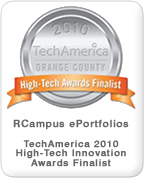Thomas William Roden
Social Networking
Lecture 1.1
- What does "new/media/technology" mean?
- Digitisation
- Convergence
- Networking
Benefits of digital media forms:
- manipulable
- networkable
- compressible
Digitisation creates the conditions for inputting high quantities of data, fast access to that data, and easy of exchange of that data.
Convergence: texts, mediums, media ownership coming together, merging, depending on one another, interacting.
Convergent products and services:
- fax/online
- SMS/email/WAP
- online gaming
- internet radio
- internet TV
- CD/mp3/online music downloads
Networking
- Physical: broadband, fibre-optic or copper wire, satellite, wireless
- Implications: fast-paced ability to access information from distant places
- Napster, P2P file-sharing, etc, changing the way we purchase or access music, video, pictures, etc
- accessibility of social contact: MySpace, Facebook, online identities and instant communication
- changes in cultural mentality: The Network Society
Lecture 1.2
20 Key concepts:
- collective intelligence
- convergence
- creative industries
- cyberspace
- digital capitalism
- digital copyright/cc
- digital divide
- globalisation
- hype
- information overload
- interactivity
- knowledge economy
- networks
- participation
- mediation
- security/surveillance
- speed
- ubiquity
- UGC/user-led innovation
- virtuality
An information age (three Cs)
- computing technology
- communications networks
- content
Computing technology:
- analog to digital
- internet
- Web 1.0 (static, push)
- Web 2.0 (dynamic, push/pull)
Representational/presentational media
|
|
|
|
|
|
|
|
Power to the user
- find data
- manipulability
- aggregation
- sharing
- remediation
- archiving
Contemporary trends are to mobility and individual uses
- film theatres: video, DVD, streaming
- radio: broadcasting, personal sets, podcasting
- television: digital, plasma, streaming on PC, mobile
- computers: PC in the house/office then portable, enhanced capability, wireless, converged
- phones: mobile, internet enhanced, converged with camera functions
But each technology has an individual genealogy and practices which might be transferred
Your mobile, you're mobile, your lifeworld
- discourses (free, new, personal)
- subjectivities (cool, connected, anywhere/anytime)
- virtual space and convergences (where are you when you are on your mobile phone?)
- consumer/prosumer power
A 'revolution'?
- dynamic global and regional media economies
- a national media economy
- media which mix it all up (cross platform, multi-modes)
- media which cross huge space instantaneously (sky, sea)
- wearable communicative devices which converge technologies
- consumer technologies, digitally converged homes, new user practices
- narrowcast/niches
- participation and power in a growing set of users
Our course textbook's theoretical and polemical approaches:
- describes technology innovation
- indicates global nature of systems
- looks at move from 'audiences and texts' to users, uses and practices
- political economy
- argues for the agency of citizen-consumer
Tutorial 1
The first tutorial provided an opportunity for the students to get to know one another and the tutor, Tina Bettels. The principal exercise in this class was to complete a digital skills survey. Upon completion, the class discussed required skills and issues that may need to be addressed for the future media environment. Two key social networking sites, MySpace and Facebook, were also discussed in relation to their aesthetic, functional, content and privacy attributes.
Required reading for this tutorial covered the basics concepts of technology, including definitions, the explanation of how the word was derived and listing various derisions. The textbook chapter looked at technology as a way of being and thinking and at technology as a thing itself.
